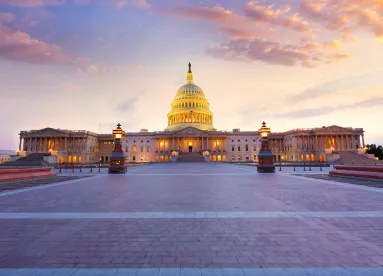Administration Limits Nonimmigrant Visas.
On June 22, 2020, President Trump issued a Proclamation Suspending Entry of Aliens Who Present a Risk to the U.S. Labor Market Following the Coronavirus Outbreak. The proclamation extends the president’s April 22, 2020, prohibition on immigrant visas, and expands its scope to cover nonimmigrant visas, including H-1B, H-2B, J-1, and L-1 visa holders. Ann H. Lee, Amy R. Dalal, and Whitney Brownlow have the details. Proponents say the action will aid economic recovery during a time when unemployment in the United States hovers at around 13 percent (even though unemployment in the jobs that would be filled by highly-skilled visa holders is closer to 3 percent). Others, including members of the business community, criticized the move as an unnecessary (and potentially unlawful) roadblock to economic recovery and innovation.
DOL on Liquidated Damages.
On June 24, 2020, the Department of Labor’s (DOL) Wage and Hour Division (WHD) issued Field Assistance Bulletin (FAB) 2020-2, titled “Practice of Seeking Liquidated Damages in Settlements in Lieu of Litigation.” Under the policy announced in the FAB, “WHD will no longer pursue pre-litigation liquidated damages as its default policy from employers in addition to any back wages found due in its administratively resolved investigations.” Many in the business community complained that the practice of pursuing liquidated damages as a part of pre-litigation settlements had become a matter of course, rather than an exception, for the previous administration’s DOL. With more money at stake, such a practice discouraged quick and easy settlements. The WHD issued the FAB pursuant to President Trump’s recent executive order encouraging agencies to “consider the principles of fairness in administrative enforcement and adjudication.”
NLRB Discipline.
In 800 River Road Operating Company, LLC d/b/a Care One at New Milford, the National Labor Relations Board (NLRB) held that where there is a new collective bargaining relationship in advance of a first contract, an employer may unilaterally exercise discretionary discipline of employees that is consistent with established pre-union policy or practice. The decision overturns the Board’s 2016 decision in Total Security Management Illinois 1, LLC, which required an employer to provide notice and an opportunity to the union to bargain before imposing discipline. In so holding, the Board in 800 River Road Operating Company returned federal labor law to where it had existed for 80 years prior to the decision in Total Security Management.
EBSA on ESG Investing.
On June 23, 2020, the DOL’s Employee Benefits Security Administration (EBSA) issued a proposed rule relating to environmental, social, and corporate governance (ESG) investing and the Employee Retirement Income Security Act’s (ERISA) requirement that plan fiduciaries act exclusively to benefit retirement plan participants and their beneficiaries. The proposal “is designed in part to make clear that ERISA plan fiduciaries may not invest in ESG vehicles when they understand an underlying investment strategy of the vehicle is to subordinate return or increase risk for the purpose of non-pecuniary objectives.”
Whither the Reg Agenda?
With the federal regulatory machine being the chief policymaking apparatus these days, many Washington, D.C. policy wonks are wondering when the administration might release its spring regulatory agenda. Last year’s spring regulatory agenda was released on May 22, 2019. Of course, as the Buzz mentioned recently, regulations that may be finalized now or in the future are potentially at risk of being rescinded under the Congressional Review Act (depending on the outcome of the elections, obviously). But will the administration provide a glimpse of regulatory concepts that it might pursue in a second term, or will it keep these ideas close to the vest for now? If history is any guide, while running for a second term in 2012, President Obama didn’t issue any regulatory agendas until December 21, 2012—well after the election.
The 51st State: Washington, Douglass Commonwealth.
On June 26, 2020, the U.S. House of Representatives passed the Washington, D.C. Admission Act, which would create a new state called “Washington, Douglass Commonwealth,” while carving out a federal enclave within such state to be known as the District of Columbia for the seat of the U.S. government. The bill has been around for years (always enumerated as H.R. 51—get it?), but this is the first time it has passed the House. Proponents argue “no taxation without representation”—why should the 700,000 taxpaying residents of Washington, D.C. be deprived of meaningful representation in Congress? Opponents, on the other hand, claim that the U.S. Constitution mandates a separate federal district and that the framers did not want to locate the federal capital within the boundaries of a state, as that state would wield undue influence and authority over the federal government. They argue further that the bill conflicts with the 23rd Amendment to the U.S. Constitution (granting three electoral votes to Washington, D.C.) because the few city blocks (largely nonresidential) that would constitute the federal government would have the same number of electoral votes as Alabama, Delaware, Montana, North Dakota, South Dakota, Vermont, and Wyoming. Ultimately, the bill is unlikely to advance in the Senate, but passage in the House indicates that Washington, D.C. statehood could be a reality should Democrats tilt the balance of power in the November 2020 elections.




 />i
/>i
